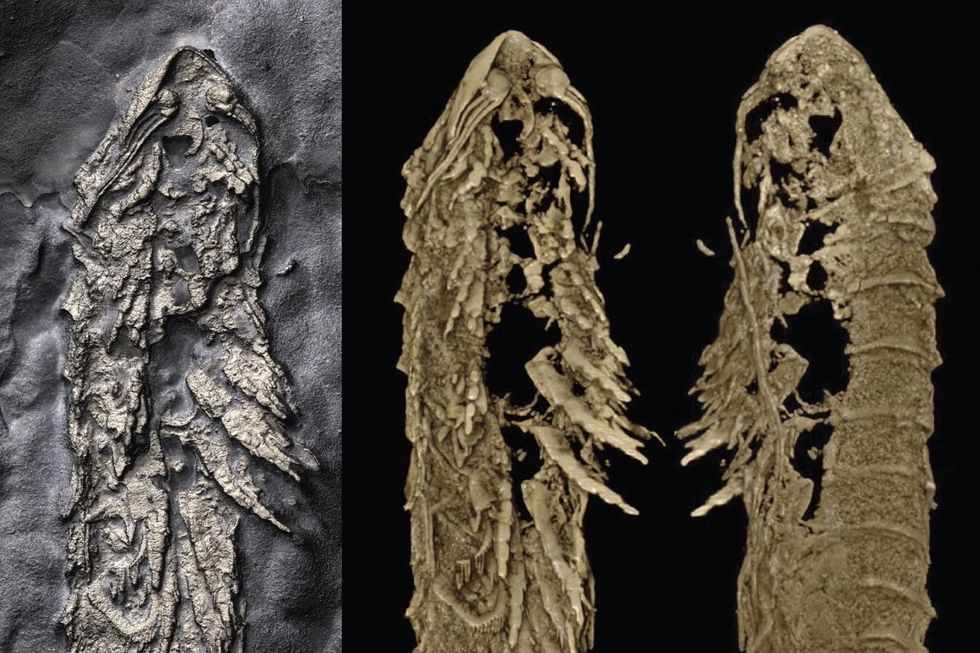Science & Tech
Ellie Abraham
Dec 18, 2024
Discovery of one of the oldest-ever fossils sheds new light on rise …
Various
Experts have discovered a 450-million-year-old 3D fossil of a spider relative preserved in fool’s gold.
Fossils offer a fascinating glimpse into the past, helping scientists understand what species existed in ancient times. A fossilised giant trapdoor spider was recently found in New South Wales, while in Los Angeles a megalodon shark fossil was found underneath a high school.
Now, in what has been described as a “spectacularly preserved” discovery, a new species of spider has been identified from a fossil found inside iron pyrite, known as fool’s gold.
A research team led by the University of Oxford found the new species, which is a distant relative of arachnids we know today like scorpions and horseshoe crabs.
It belongs to a group of arthropods called megacheirans which possess a large appendage on the front of their heads to capture prey with. The new species has been named lomankus edgecombei to honour Greg Edgecombe, an arthropod expert from the Natural History Museum in London, the BBC reports.
The fossil was found at the Beecher’s Trilobite Bed located in New York State. The site has a layer of rock that contains well-preserved fossils. The animals typically found in that region lived in hostile environments with little oxygen.
As iron pyrite filled the imprint where the arthropod’s body had been, the fossils found are gold in colour and 3D.

Associate professor Luke Parry, the lead on the research team, said the fossils “look as if they could just get up and scuttle away”.
“Part of the key to this success is their highly adaptable head and its appendages, that has adapted to various challenges like a biological Swiss army knife,” he said.
“As well as having their beautiful and striking golden colour, these fossils are spectacularly preserved.”
This article was first published on November 4, 2024
Sign up for our free indy100 weekly newsletter
How to join the indy100's free WhatsApp channel
Have your say in our news democracy. Click the upvote icon at the top of the page to help raise this article through the indy100 rankings
Top 100
The Conversation (0)














